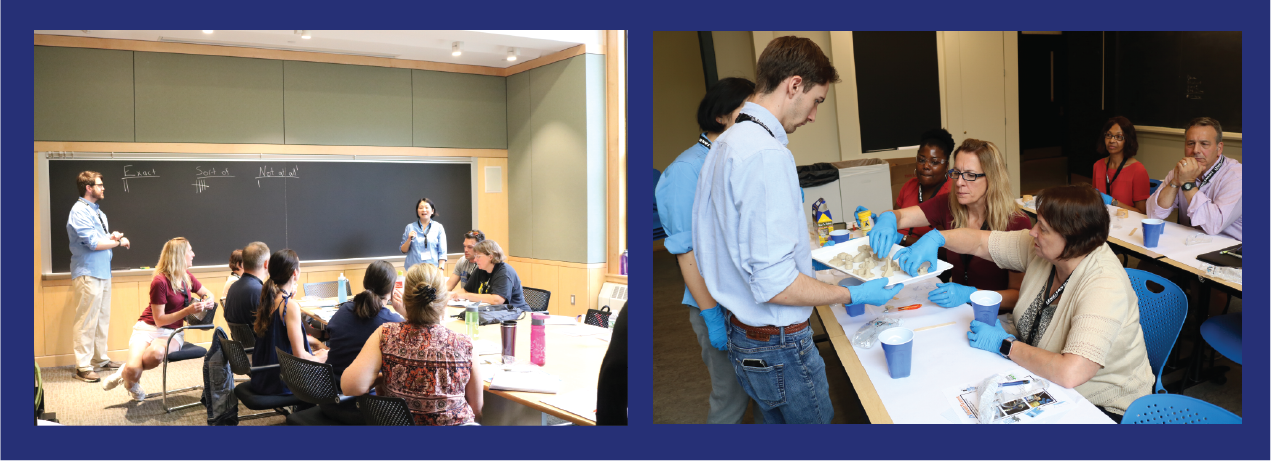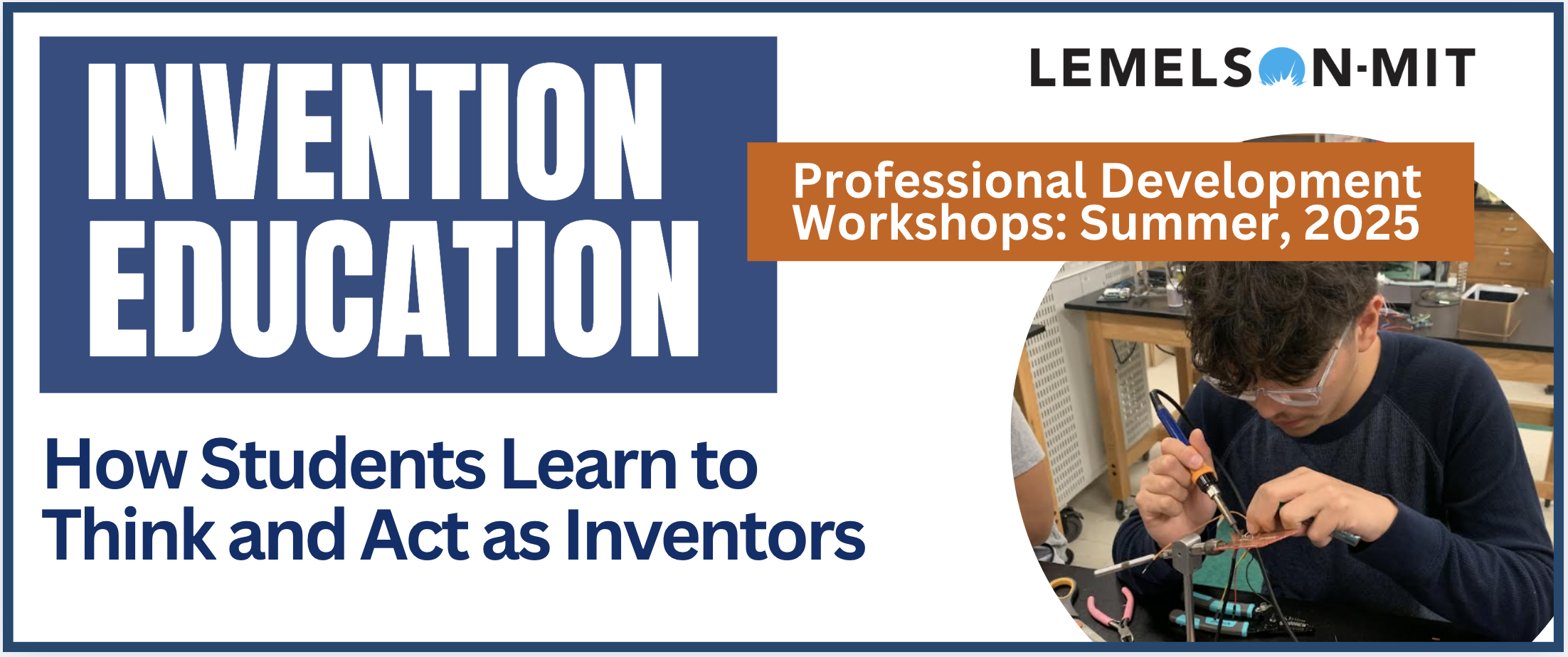Engage students and bring excitement to the classroom
Invention Education re-engages and empowers students by building their confidence in STEM and encouraging them to tackle real-world problems that matter to their communities. Through this process, they develop both technical solutions and a passion for innovation.
At these professional development sessions, you’ll meet inspiring high school inventors, experience the invention process firsthand, and explore how intellectual property (IP) can help students protect their ideas. You'll also hear from expert speakers and educators while gaining practical tools to bring Invention Education to your school or district.
We just completed our June event, but there are two more opportunities to attend PD in Stockton, CA or Cambridge, MA. See below for more details.
Participants will receive a certificate for attending that includes 15 participation hours.
The Lemelson-MIT Program is an approved professional development provider by the Massachusetts Department of Elementary and Secondary Education.
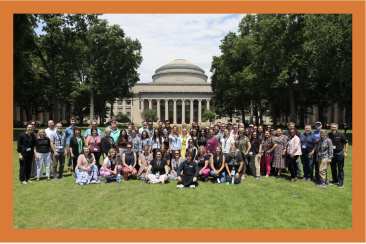
Administrator Session: MIT, Cambridge, Massachusetts
Here are quotes from the event:
"The opportunity for students to do their own learning and expand their thinking by applying skills that will allow them to be successful in life."
"This approach cultivates not only critical thinking and technical skills, but also empathy, resilience, and a sense of purpose. It aligns deeply with my mission to help students discover their passion and unlock their potential through interdisciplinary, inquiry-driven learning."
If you missed this event, consider one of our two other events this summer.

Educator Session Option 1: Stanislaus State Stockton Campus, Stockton, California
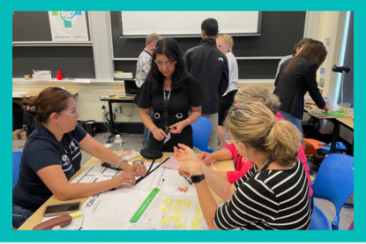
Educator Session Option 2: MIT, Cambridge, Massachusetts
Session Schedules and Speakers
Day 1:
- 8:00 AM to 9:00 AM: Breakfast
- 9:00 AM to 9:30: Welcome introduction by Dr. Michael Cima
9:30 AM to 12:00 PM: Invention Process Sprint
Ready • Set • Go! You’ll be on the path to invention in this fun (and often hilarious) eye-opening workshop that takes participants through the invention process.- 12:00 PM to 12:45 PM: Networking Lunch
1:00 PM to 2:00 PM: Invention Education: The What and the Why
This overview explores the true power and promise of Invention Education as seen through the eyes—and results—of educators and students.2:00 PM to 4:00 PM: How to Bring Invention Education to the Classroom
Hear from educators how they took an initial program and deployed it throughout different disciplines in their school or district.
Day 2:
- 8:00 AM to 8:45 AM: Breakfast
- 9:00 AM to 12:00 PM: Breakout sessions
- Stepping into Coding and Inventing through Toy Design
Toy Design allows for the cultivation of new ways of thinking and helps to develop technical skills for students with limited access to hands-on STEM enrichment opportunities. Through prescribed activities, you’ll see how students can add to their own "toolkits" of minds-on knowledge and hands-on skills while having fun! - Introducing Inventing Smart Solutions Curriculum
High school educators are introduced to a proprietary two-semester invention process curriculum that encourages students to discover and carry out team-based invention projects that solve problems that the students choose.
- Stepping into Coding and Inventing through Toy Design
- 12:00 PM to 12:45 PM: Networking Lunch
- 1:00 PM to 3:45 PM: Breakout sessions
Invention Education is Transdisciplinary: E -Textiles
Experience invention education through art and mixed media with the creative process of designing light-up paper art and wearable technology. The curriculum takes students through an introduction to basic circuitry, artistic possibilities with circuitry, and finally to the application of light-up technologies in the problem-solving space. Participants will get to make light-up cards in this session.- Inventing Smart Solutions, continued from earlier session
- 3:45 PM to 4:00 PM: Discussion and closing remarks
Day 1:
- 8:00 AM to 9:00 AM: Breakfast
9:00 AM to 12:00 PM: Invention Process Sprint
Ready • Set • Go! You’ll be on the path to invention in this fun (and often hilarious) eye-opening workshop that takes participants through the invention process.- 12:00 PM to 12:45 PM: Networking Lunch
1:00 PM to 2:00 PM: Invention Education: The What and the Why
This overview explores the true power and promise of Invention Education as seen through the eyes—and results—of educators and students.2:00 PM to 4:00 PM: How to Bring Invention Education to the Classroom
Hear from educators how they took an initial program and deployed it throughout different disciplines in their school or district.
Day 2:
- 8:00 AM to 8:45 AM: Breakfast
- 9:00 AM to 12:00 PM: Breakout sessions
- Stepping into Coding and Inventing through Toy Design
Toy Design allows for the cultivation of new ways of thinking and helps to develop technical skills for students with limited access to hands-on STEM enrichment opportunities. Through prescribed activities, you’ll see how students can add to their own "toolkits" of minds-on knowledge and hands-on skills while having fun! - Introducing Inventing Smart Solutions Curriculum
High school educators are introduced to a proprietary two-semester invention process curriculum that encourages students to discover and carry out team-based invention projects that solve problems that the students choose.
- Stepping into Coding and Inventing through Toy Design
- 12:00 PM to 12:45 PM: Networking Lunch
- 1:00 PM to 4:00 PM: Breakout sessions
Invention Education is Transdisciplinary: E -Textiles
Experience invention education through art and mixed media with the creative process of designing light-up paper art and wearable technology. The curriculum takes students through an introduction to basic circuitry, artistic possibilities with circuitry, and finally to the application of light-up technologies in the problem-solving space. Participants will get to make light-up cards in this session.- Inventing Smart Solutions, continued from earlier session
- 4:00 PM to 5:00 PM: Discussion and closing remarks
Join experienced educators in a series of sessions and workshops that will bring invention education to life.
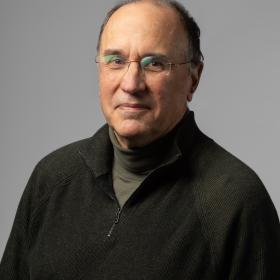
Michael J. Cima is a David H. Koch Professor of Engineering and a professor of materials science and engineering at the Massachusetts Institute of Technology. He earned a bachelor’s degree in chemistry in 1982 (phi beta kappa) and a doctorate in chemical engineering in 1986, both from the University of California at Berkeley before joining the faculty at MIT as an assistant professor that same year. He was promoted to full professor in 1995. Michael has an appointment at the David H. Koch Institute for Integrative Cancer Research; is a Fellow of the American Ceramics Society; was elected to the National Academy of Engineering; holds the David H. Koch Chair of Engineering at MIT; is a Fellow of the National Academy of Inventors; a co-director of MIT's Innovation Initiative; and the associate dean of innovation for the School of Engineering at MIT. Read more about Prof. Cima's accomplishments and lab work.
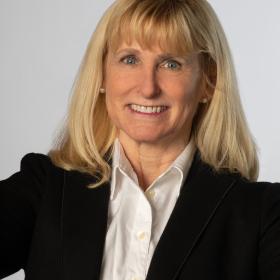
Stephanie Couch is the Executive Director of the Lemelson-MIT Program. In this role, she leads a team which help educators and students across the U.S. learn ways inventors find and solve important problems.
She has dedicated her career to K-12 and higher education policy issues and is an active participant in a national invention education research group. Her research as an ethnographer in education focuses on issues that are key to advancing equity within the field of invention education and STEM learning opportunities. She studies ways invention education impacts students (especially those from underrepresented backgrounds), schools, and local communities. She also works to understand the developmental trajectory of inventors as opposed to their inventions.
Locally, Stephanie spearheaded and was President of the Foundry Consortium in Cambridge, MA. The Foundry Consortium directed the development of The Cambridge Foundry, a new 50,000 square foot community center for STEM and the arts, which opened in 2022. Prior to joining the Lemelson-MIT Program, Couch was the Interim Associate Vice President of Research and Professional Development at California State University, East Bay, served as Bayer Executive Director of the Institute for STEM Education, and was the Director for Gateways East Bay STEM Network. These opportunities came about as a result of her work in teaching and learning with technologies while employed by the Corporation for Education Networking Initiatives in California (CENIC).
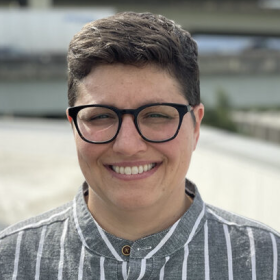
Katie Krummeck joined The Lemelson Foundation in 2023 as a Program Officer. Focusing on Invention Education, Krummeck leverages the power of design to drive change in social systems, and uses the design process and maker-based instruction to create student-centered learning experiences that develop students’ creative confidence, optimism, and problem-solving skills.

Keynote Speaker/Administrator Session
Dr. Balcells-Camps joined the Harvard-MIT Biomedical Engineering Center in 1999 as a postdoctoral fellow carried out pioneer work in tissue engineering of vessel-like structures. In 2006 Dr. Balcells became a MIT research scientist and profesora titular in Bioengineering at her alma mater, Institut Químic de Sarria (Ramon Llull University). Through her dual appointment at MIT and Institut Químic de Sarrià, Dr. Balcells has promoted innovative, highly productive research and educative exchanges between both institutions and countries. Dr. Balcells is a passionate scientist who embraces working with physicians and clinicians as well as industry partners to accelerate the path of new technologies and therapies from bench to bed-site. She is also a motivated mentor and the projects she leads become the ideal venue to educate the next generation of engineers, biologists, material scientists, physicians, computer scientists and chemists who learn to work collaborative as the only way to solve today’s greatest challenges in health. Dr. Balcells is an entrepreneur and co-founded the Spanish start-up Regenear that utilizes chondrocytes from a small biopsy to regenerate cartilage for facial tissue regeneration. She also chairs the new MIT IDEA2 Global program, which provides mentoring and connections to biomedical innovators around the world to develop and realize their project ideas.
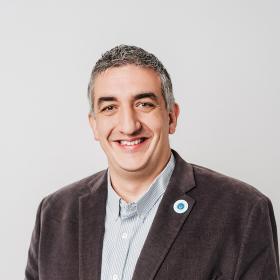
Michael is a dynamic leader, keynote speaker, and advocate for innovative educational practices. After a decade as a high school math teacher and basketball coach, he spearheaded the development of Tennessee’s first Fab Lab in 2014 at STEM School Chattanooga. Since then, Michael has driven the expansion of groundbreaking educational initiatives in thousands of public schools nationwide.
A former Albert Einstein Distinguished Educator Fellow at the National Science Foundation in Washington, DC, Michael now serves as Vice President of Innovative Learning at the Public Education Foundation in Chattanooga, TN. In this role, he leads transformative programs, including the Volkswagen eLab network—the largest network of FabLabs in the world, making digital fabrication available to more than 35,000 public school students in his community. Through his work with VW eLabs, he recently founded FabFolio, a web-based software platform that closes the gap between K-12 education and local employers through a novel approach to micro-credentialing.
Michael has shared his insights on innovative leadership strategies and generative AI integration with audiences across dozens of states and internationally. He also works with executive teams at private and government organizations to harness the potential of generative AI for greater impact and productivity.
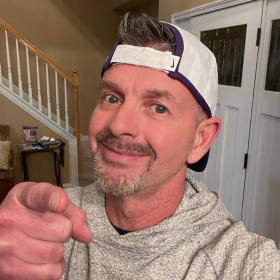
Kevin is an industry veteran, inventor, and educator with over 60 patents and a career rooted in high-impact research and product innovation. As the former leader of breakthrough R&D projects, Kevin is known for assembling high-performing teams, fostering bold thinking, and delivering game changing results. He now serves as the Industry Lead for the Office of Innovation at Fayette County Public Schools; and as Chief Technology Officer at K. North, a nonprofit helping older adults stay connected and safe from scams.
In recent years, Kevin has led student-driven initiatives that have impacted industry. These include a large language model assistant for seniors, a multilingual social robot created with Furhat Robotics, and a cutting-edge VR training project developed in partnership with SRC, a leading remanufacturer of large engines. Kevin’s approach flips the traditional script: rather than having industry take roles of a guest speaker or advisor, the students are the ones showing industry what’s possible—demonstrating how emerging technologies can drive real value and innovation in the workplace.
He is driven by the belief that young people are a vastly underutilized resource—and that bold mentorship can help them shape the future of work, technology, and community. His work reflects a deep commitment in the invention education space.
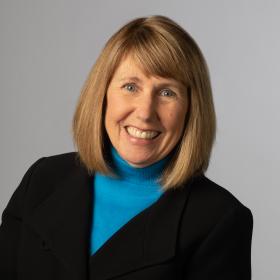
Leigh Estabrooks has been a part of the LMIT family since 2006. Leigh managed the InvenTeams initiative and two years later became the Invention Education Officer, overseeing all K-12 invention education initiatives. She has been instrumental in the development of new initiatives, including Junior Varsity InvenTeams™ and the 2010 launch of the Inventing Merit Badge with the Boy Scouts of America. Leigh was active in the development of LMIT's proprietary curriculum, Inventing Smart Solutions. Leigh previously held positions in product development at Fortune 500 companies and was a licensed secondary school educator. She received a bachelor’s degree in agriculture from the University of Tennessee, a master’s degree in business management from Rensselaer Polytechnic Institute, and a doctoral degree in education from Northeastern University. Though Leigh retired from MIT in December 2024, she remains an active contributor to LMIT programs with a focus on education about the importance of intellectual Property.
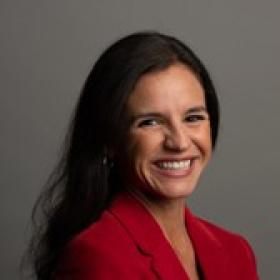
Cristina Sáenz is the Invention Education Manager at Lemelson-MIT (LMIT). Cristina leads the Partners in Invention Education team as they work with educators and administrators to build thriving and sustainable invention education pathways in diverse communities throughout the United States. Prior to joining the team at LMIT, Cristina was an elementary school teacher in both Boston, MA and Orlando, FL. During her time as a teacher, she became passionate about engaging students who don’t see themselves as “STEM people” in inventing and STEM fields. After years in the classroom, Cristina entered the University of Central Florida’s College of Community Innovation and Education to pursue her PhD in Education with an emphasis on Inclusive STEM. Her research has been published in peer reviewed, scholarly journals and presented at national conferences.
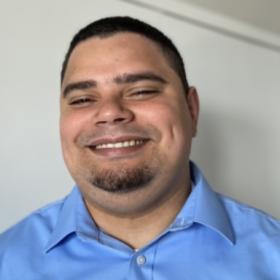
Prior to joining Lemelson-MIT, Edwin taught middle school mathematics in New York City public schools. He implemented unique curricula to incorporate engineering principles into core math content, providing young women, Black, Indigenous, Latinx, and other disinvested communities with an opportunity to apply their mathematical learnings to topics and research fields more relevant to their daily lives.
Edwin also led a racial equity committee for his school community to support staff in implementing equitable teaching practices in their classrooms. Edwin’s passion to develop solutions to remedy historic inequities is derived from his love for STEM fields. He aspires to create a better world through STEM programming and Invention Education.
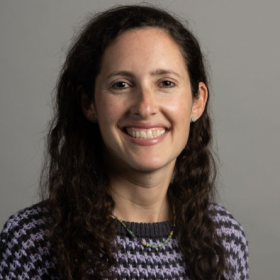
Liza Goldstein is an Invention Education Administrator at the Lemelson-MIT Program, where she leads the K-12 curricula development of hands-on invention activities and oversees local outreach efforts in Cambridge, Massachusetts. A big believer in showing kids that they can solve problems impacting their lives or communities, Liza is passionate about invention education.
Liza’s background in curricula development, teaching, and STEM education, have been an asset to growing Lemelson-MIT’s collection of resources and connecting with local organizations. Prior to joining Lemelson-MIT, Liza received a Masters of education and led outreach efforts for three years at GBH, Boston’s PBS station. At GBH, she worked on productions like “Design Squad” and kickstarted the “Time to Invent Club,” an invention after-school program for elementary-age students funded by the Lemelson Foundation. Liza began working at Lemelson-MIT in 2013 where she was tasked with writing the JV InvenTeam curricula and training high school grantees to implement the new initiative. Liza continues to lead invention education endeavors that tap into her strong writing, communications, creative thinking, and outreach skills. Outside of work, Liza is currently writing a children’s invention book for girls, serves on the PTO board at her children’s school, and trains for half marathons.
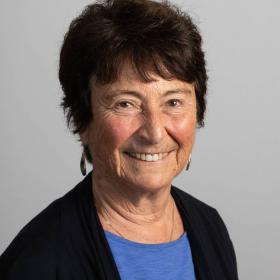
Brenda Payne has been an innovator in the field of Invention Education for K-12 students for 30 years, providing training for educators, program leaders, and administrators throughout the state of California.
Brenda began her career as an educator in Northern California where she introduced invention education to students, utilizing an engineering curriculum she helped develop for her district. Continuing on as a principal at several schools in Northern and Central California and a superintendent in a small district in Santa Cruz County, she began the California Invention Convention (CAIC), a program that serves thousands of students as an annual celebration of K-12 inventors and entrepreneurs across the state.
Brenda has provided the professional development for the CAIC curriculum teachers use in their classrooms and after school programs. Since joining the Lemelson/MIT staff, she has worked with other education experts to develop training modules for teachers throughout the country so they too can provide their students with the necessary creative and problem-solving skills to successfully engage in inventing solutions to self-identified problems in their own lives, that of their friends and families, and their communities.
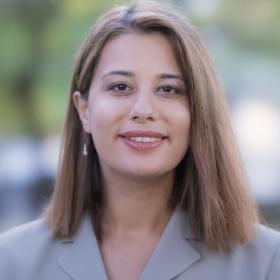
Tamara holds a PhD degree in Educational Leadership and Learning Technologies from Drexel University. She completed her two-year postdoctoral training at the University of Utah’s College of Education. Prior to joining the MIT community, Tamara worked as an Educational Research Associate at Cornell University, an Adjunct Faculty at Johns Hopkins University, and a Research Professor at Drexel University. Tamara also served as a Founding Co-Director of Education, Learning, and Brain Sciences (E-LaBS) research lab at Drexel University
Tamara’s research is interdisciplinary and lies at the intersection of Learning Sciences, STEM education, and learning technologies. She has more than a decade of professional experience in educational research, teaching graduate and undergraduate courses, serving on dissertation committees, curriculum development, program evaluation and assessment, as well as teacher training and mentoring in the context of PreK-12, higher education, and continuous workplace learning. Tamara’s work has been published in scholarly journals and presented at national and international conferences.
Click here to access a mobile friendly schedule.
Day 1:
- 8:00 AM to 8:45 AM: Breakfast on the MIT campus
- 8:45 AM to 9:30 AM: Orientation
- 10:00 AM to 12:00 PM: EurekaFest presentations
See the future of your invention education program as high school InvenTeams present their year-long invention projects. - 12:00 PM to 1:00 PM: Lunch
- 1:30 PM to 2:30 PM: EurekaFest Opening Session
- Keynote Speaker: Mercedes Balcells-Camps, PhD
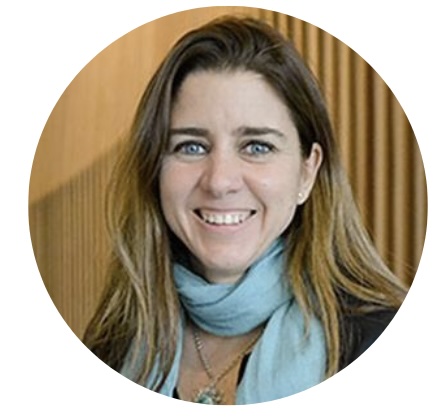 Dr. Balcells-Camps is a Principal Research Scientist, MIT, Institute of Medical Engineering & Science. She is a motivated mentor and the projects she leads become the ideal venue to educate the next generation of engineers, biologists, material scientists, physicians, computer scientists and chemists who learn to work collaborative as the only way to solve today’s greatest challenges in health. Read more about Dr. Balcells-Camp here.
Dr. Balcells-Camps is a Principal Research Scientist, MIT, Institute of Medical Engineering & Science. She is a motivated mentor and the projects she leads become the ideal venue to educate the next generation of engineers, biologists, material scientists, physicians, computer scientists and chemists who learn to work collaborative as the only way to solve today’s greatest challenges in health. Read more about Dr. Balcells-Camp here.
- 2:45 PM to 4:15 PM: Guided tour of EurekaFest Showcase
You'll have the opportunity to speak to students about their inventions, ask questions, and give vaulable feedback. You'll see first hand how invention education can change the trajectory of students' lives as they become creative problem solvers. - 4:30 PM to 5:15 PM: Day 1 Wrap-up and Discussion
Day 2:
- 8:00 AM to 9:00 AM: Breakfast
- 9:00 AM to 9:30 AM: Day 2 Introduction
- 9:40 AM to 12:00 PM: Invention Process Sprint:
Ready • Set • Go! You’ll be on the path to invention in this fun (and often hilarious) eye-opening workshop that takes participants through the invention process. - 12:15 PM to 1:15 PM: Networking Lunch
- 1:30 PM to 1:50 PM: Afternoon Overview
- 2:00 PM to 3:20 PM: First Afternoon Sessions
- Invention Education: Measuring What Matters
Presenters: Michael Stone, Vice President of Innovative Learning at Public Education Foundation Chattanooga and Co-founder of FabFolio; Stephanie Couch, Executive Director, Lemelson-MIT
This overview explores the true power and promise of Invention Education as seen through the eyes—and results—of educators and students. - Introducing Inventing Smart Solutions Curriculum
Educators are introduced to a proprietary two-semester invention process curriculum that encourages students to discover and carry out team-based invention projects that solve problems that the students choose. - Stepping into Coding and Inventing through Toy Design
Toy Design allows for the cultivation of new ways of thinking and helps to develop technical skills for students with limited access to hands-on STEM enrichment opportunities. Through prescribed activities, you’ll see how students can add to their own "toolkits" of minds-on knowledge and hands-on skills while having fun!
- Invention Education: Measuring What Matters
- 3:30 PM to 4:45 PM: Second Afternoon Sessions
- Bringing Invention Education to your Community
Presenters: Stephanie Couch, Executive Director, Lemelson-MIT; Kevin Schoedinger, Industry Lead for the Office of Innovation at Fayette County Public Schools
Hear from educators how they took an initial program and deployed it throughout different disciplines in their school or district - Excite Award Recipients: Special session
- Invention Education is Transdisciplinary: E -Textiles
Experience invention education through art and mixed media with the creative process of designing light-up paper art and wearable technology. The curriculum takes students through an introduction to basic circuitry, artistic possibilities with circuitry, and finally to the application of light-up technologies in the problem-solving space. Participants will get to make light-up cards in this session. - Intellectual Property 101: from Idea to Invention, and Beyond
Led by Leigh Estabrooks, this session is an overview of copyrights, trademarks, and patents and the role they can play as one goes from an idea to an invention, a process considered "the wellspring of innovation." Also covered will be the importance of implementing a district-wide IP policy to protect the good ideas of students and educators.
- Bringing Invention Education to your Community
- 4:45 PM to 5:00 PM: Discussion and closing remarks
Testimonials
Hear what individuals who have joined PiE on the pathway to invention have to say...
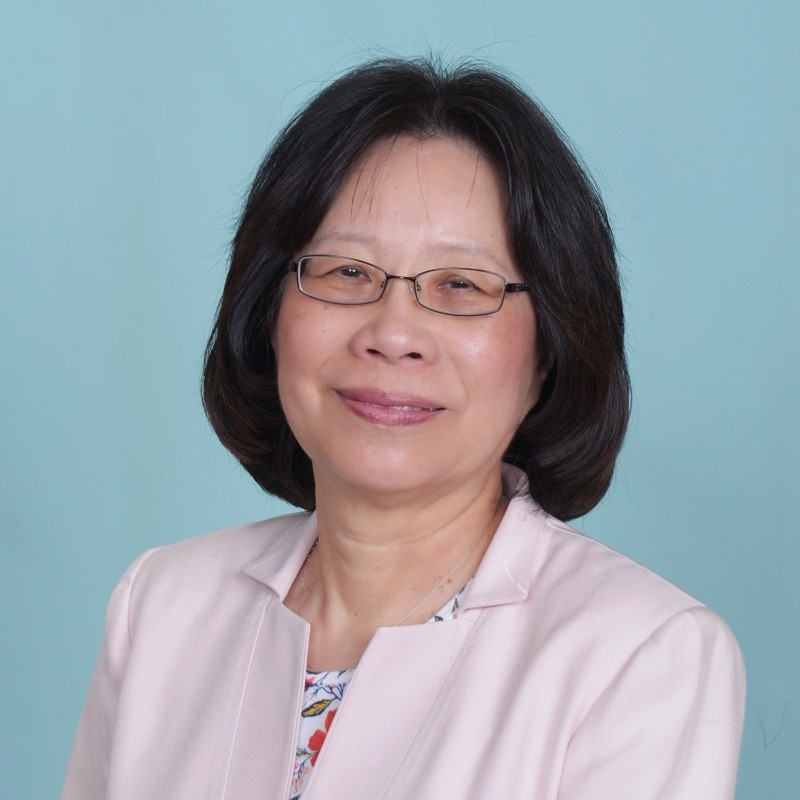
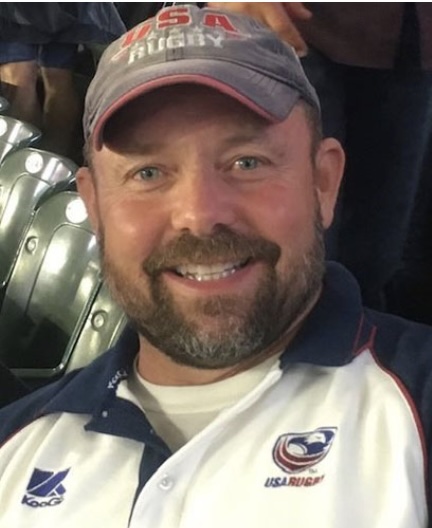
Who Should Attend?
Administrators
Superintendents
Educators at all levels
Community College Administrators and Faculty
After-school Professionals
Library Professionals
Museum Professionals
We encourage participation by teams consisting of both administrators and educators committed to creating pathways to invention for students.
Invention is transdisciplinary, so educators from all disciplines are invited to attend.

What Will You Gain?
Administrators and educators with varying levels of experience (new to invention education, experienced, and community college level) will develop the capacity to help students learn to think and act as inventors. There will be large group sessions for all, and smaller sessions broken out by IvE theme or grade span.
Participants will gain:
- Approaches to engaging students from diverse backgrounds in STEM learning
- Ways to develop students' capacities to think and act as inventors
- Hands-on activities that will help students become creative problem solvers
- Best practices for strengthening STEM, entrepreneurship, and enrichment programming
Participants will receive a certificate for attending that includes 15 participation hours.
The Lemelson-MIT Program is an approved professional development provider by the Massachusetts Department of Elementary and Secondary Education.
